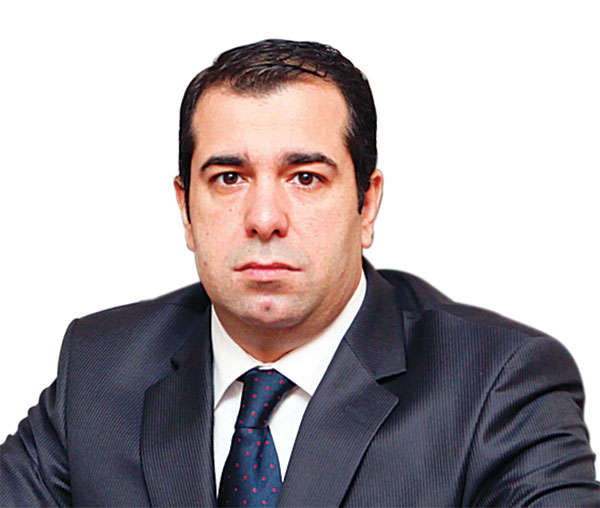Azerbaijan courts stronger relations with Vietnam
 What is the main reason behind the opening of Azerbaijan’s embassy to Vietnam? Could you tell us how Azerbaijan views its relationship with Vietnam politically and economically?
What is the main reason behind the opening of Azerbaijan’s embassy to Vietnam? Could you tell us how Azerbaijan views its relationship with Vietnam politically and economically?
After regaining its independence in 1991, one of the main priorities for Azerbaijan was establishing relations with other countries based on mutual respect. For this reason Azerbaijan started to open diplomatic offices in different parts of the world and today the Republic of Azerbaijan has about 80 diplomatic missions and consulates abroad, including some in the Southeast Asian region. We currently have embassies in China, India, Indonesia and Malaysia.
Regarding Azerbaijan’s decision to open an embassy in Vietnam, I would like to say that today our main aim is to find fields where our state and private companies and businesspeople can co-operate. In terms of this, I think both countries have great potential. Good opportunities exist to develop co-operation in the fields of culture, education and tourism. So our aim is clear – to establish and develop an independent and equal relationship based on mutual respect and benefit.
Speaking about the importance of Vietnam to Azerbaijan I should of course relate it to our historical background, which goes back to the Soviet era. During the Soviet period a lot of Vietnamese students gained higher education in Azerbaijan and today many of them are currently working as officials in Vietnam. Our oil and gas specialists exchanged their experiences with Vietnamese colleagues. As you can see there was a good mutually beneficial relationship between Azerbaijan and Vietnam, and now our country attaches great importance to the development of these historical ties. Our countries are rapidly developing and each of them plays an important role in their region. We have huge potential which we definitely need to use in order to develop co-operation in all spheres.
What will Azerbaijan’s focus be in terms of working with Vietnam? Will oil and gas continue to be a highlight of bilateral relations as previously?
As I said, we had close ties in this sector during the Soviet period. But today the area of our mutual interests would not be limited to oil and gas. There are wider opportunities for co-operation. We are more than optimistic about this.
Do you think that tourism co-operation could be a major point?
Yes, there is major potential for tourism. In recent years the Azerbaijani government has recorded some impressive tourism results. We are experiencing year-on-year growth in tourist numbers. For developing co-operation we have to ensure both sides exchange information about tourism in each of our countries. We are already co-operating with the Ministry of Culture, Tourism and Sports, with tourism magazines and have promoted Azerbaijan as a destination among Vietnamese travel agents. Our embassy also issues entry visas to Azerbaijan and this makes it easier for people in Vietnam to travel to Azerbaijan.
However, the lack of a Vietnamese embassy in Baku makes it more difficult to promote Vietnam as a destination. It’s also difficult for our citizens to get a visa to visit Vietnam as currently they have to apply via a third party. We are continuing consultations to allow our citizens to get visas on arrival in Vietnam. I do hope that Vietnam will consider opening an embassy in Baku soon.
What will the embassy do to cement bilateral relations?
We need to canvas the business community in both countries to see areas of common interest. Then we can organise business forums. Such kind of events can bring the public and private sectors together from both countries and allow the hammering out of joint investment projects.
As I stressed several times, Azerbaijan is for the development of mutually beneficial and comprehensive co-operation with Vietnam, and in this regard our embassy is planning to study the opportunities for further co-operation, and see exchanges of official delegations. Next year we are planning to organise either a business forum or meeting of the business community of our two countries. I think these contacts will facilitate deepened economic, trade and investment links between the two countries.
What the stars mean:
★ Poor ★ ★ Promising ★★★ Good ★★★★ Very good ★★★★★ Exceptional
Latest News
More News
- MAE names big 10 policy wins in 2025 (February 06, 2026 | 08:00)
- US firms deepen energy engagement with Vietnam (February 05, 2026 | 17:23)
- Vietnam records solid FDI performance in January (February 05, 2026 | 17:11)
- Site clearance work launched for Dung Quat refinery upgrade (February 04, 2026 | 18:06)
- Masan High-Tech Materials reports profit: a view from Nui Phao mine (February 04, 2026 | 16:13)
- Hermes joins Long Thanh cargo terminal development (February 04, 2026 | 15:59)
- SCG enhances production and distribution in Vietnam (February 04, 2026 | 08:00)
- UNIVACCO strengthens Asia expansion with Vietnam facility (February 03, 2026 | 08:00)
- Cai Mep Ha Port project wins approval with $1.95bn investment (February 02, 2026 | 16:17)
- Repositioning Vietnam in Asia’s manufacturing race (February 02, 2026 | 16:00)















 Mobile Version
Mobile Version